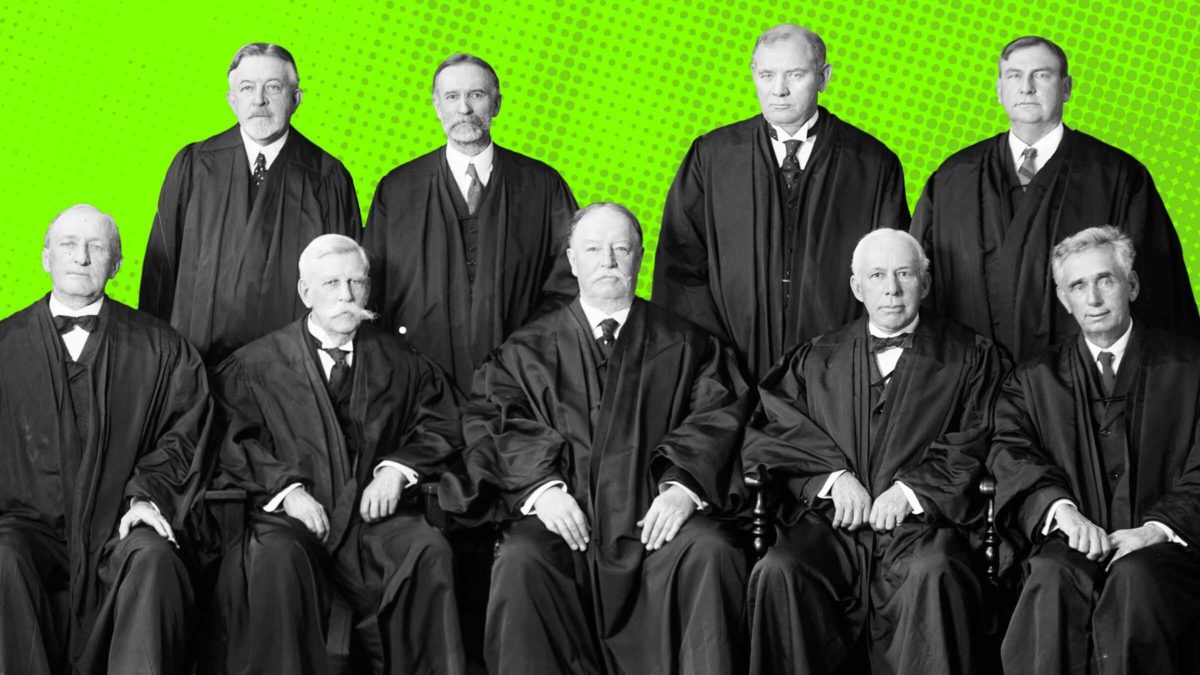The “discussion materials” released last week by President Joe Biden’s Commission on the Supreme Court has been greeted with the frustration of one who has been forced to wait a long time for an undercooked, flavorless meal. This is likely just as the administration intended: Nobody who paid any attention to this thing expected the commission to come out in favor of Court expansion. It literally excluded people from the Court reform community, and was instead made up of law professors, advocates who have to play nice with the Supreme Court as part of their jobs, and Federalist Society members who think the Court-packing already carried out by Mitch McConnell and the Senate Republicans is the only manipulation that should be allowed. The commission was designed to give Biden, who publicly opposes Court expansion, an excuse to do nothing, while muddling the issue in a “both-sides” morass that would obscure rather than illuminate public understanding of the stakes.
I had hoped that the anti-expansionist talking points produced by the commission would at least be the normal ones. I expected them to go on about the supposed dangers of endless partisan retribution (which they did) while ignoring the fact that, thanks to McConnell, we are already in an endless cycle of partisan retribution (which they also did). But the Commission also included arguments against expansion that were just incorrect, and seemed purposefully designed to mislead the public on what expansion is and where it sits within the legal tradition.
The most egregious gaslighting comes in the “comparative perspective” section, where the Commission tries to situate the U.S. Supreme Court in the global context of high courts. After an inane digression about whether “nine” is a big or small number in the global context—imagine debating whether the District of Columbia should become a state by first asking whether “51” is too few or too many administrative divisions compared to Canada or Germany—the commission comes to the completely unsupported opinion that “the American example in the world matters.”
“There are important differences between the situation in the United States and the situation in various nations experience democratic backsliding,” they write. “Nonetheless, some Commissioners believe that there is a real risk that the willingness of Congress to expand the size of the U.S. Supreme Court could further weaken national and international norms against tampering with independent judiciaries.”
Oh, you mean like that time McConnell rushed to replace a Supreme Court justice nominated by a twice-impeached president after the election to replace him had already started? What about the time Congress reduced the size of the Supreme Court from nine justices to eight justices as long as a Black guy retained the power to nominate new ones? I sure hope nobody in a country experiencing “democratic backsliding” was paying attention to the American judicial system when a man credibly accused of attempted rape was elevated to its high court and shouted semi-coherently at anyone who wondered about the reliability of his childhood calendar as exculpatory evidence for daring to question his integrity. Because, boy, if any other country was watching over the past five years, they might have come to the conclusion that America’s Supreme Court is a corrupted institution dominated by one party for the sole purpose to do by judicial fiat what it could not accomplish through popular government or attempted coup d’états.
These jingoistic appeals to American exceptionalism only serve to mislead the public about the standing of our Court and our justice system. It is rare, among advanced democracies, for a high court composed of unelected, unaccountable judges to hold the power to simply invalidate laws duly passed by the political branches of government. That’s not how they do it in England, our closest legal doppelgänger. That’s not how they do it in South Africa, which probably enjoys the most modern and inclusive written constitution in use today. Only India has a comparably powerful high court, and interestingly, India is a fellow advanced democracy that has largely been overrun by right-wing populist fever.
Nobody who wrote the Constitution actually thought the Court should have as much power as it does today. (If only Lin-Manuel Miranda had rapped about Federalist 78, more people might understand that the Court has gotten entirely too big for its britches). If anything, this drift is one of the best reasons for Court expansion: If the Supreme Court is going to have the power to simply prohibit laws passed by the people, it simply must be more representative of the people who actually live here.
Thurgood Marshall, Clarence Thomas, Sonia Sotomayor. That is the full and complete list of people of color who have been allowed into the conversation of how to interpret our Constitution. People of color have had a larger role in adjudicating the rules of hockey than they’ve had in American constitutional interpretation. Sandra Day O’Connor, Ruth Bader Ginsburg, Elena Kagan, and Sotomayor. That’s the full and complete list of women. Louis Brandeis, Benjamin Cardozo, Felix Frankfurter, Arthur Goldberg, Abe Fortas, Stephen Breyer, Ginsburg, and Kagan. I have just listed all of the non-Christians, ever, to serve on the Supreme Court. Historically speaking, MAGA rallies are more diverse than the Court. There’s never been an Asian American justice. There’s never been a Muslim American justice. There’s never been an openly LGBTQ person on the court, which is kind of amazing considering the Court claims the power to dictate the precise conditions in which LGBTQ people can kiss or pee or start a family.
And don’t even get me started on professional diversity. Don’t get me started on educational diversity. This country has one of the most powerful high courts in the world, and it has all the experiential diversity of a yacht flotilla taking a booze cruise off Martha’s Vineyard. This is what the international legal community sees: a multiethnic, multicultural, allegedly pluralist society that cedes democratic self-government to nine unelected high priests drawn from a small ruling class of elites.
If the Court is going to wield an effective constitutional veto over the will of the people, it has to include more people from more diverse walks of life and backgrounds. That is not a “liberal” point or a “conservative” point. It is a functional democracy point.
A true study of Court reform would have examined this dynamic, compared our Court to other high courts in multicultural democracies, and attempted to really wrestle with the concept of “legitimacy” in this context. Instead, the Biden Commission engaged in a few pointless counting exercises as part of an effort to determine whether the number nine is big or small, like a 12-year-old trying to figure out if $50 is “a lot of money” if it comes in quarters.
The dumb little section on international comparisons ends by noting that “other commissioners believe that these potential risks do not justify the rejection of expansion proposals in the United States.” I see you, “other commissioners.” I can only imagine your frustrations while listening to the inane prattle of people desperate to justify inaction.
There’s something exceptionally American in the assumption that people in other countries envy us, or respect us, or don’t laugh heartily behind our backs as soon as we’ve spent all our money on their tchotchkes. But the commission should have at least had the strength to be honest about the status quo: The Supreme Court, as currently constructed, is an embarrassment. Meeting international standards of justice and fairness requires that we fix it.

